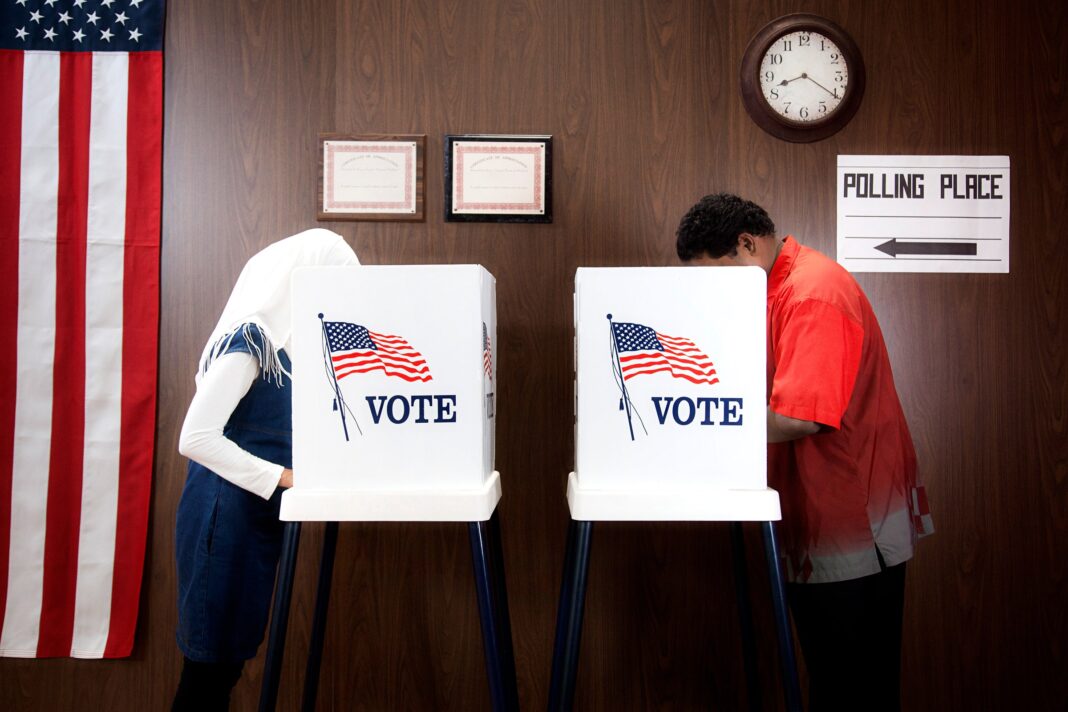Though foreign Disinformation campaigns have targeted the 2022 United States midterm elections to a degree, most of the pressure on US voting infrastructure has come from inside the house. Violent domestic threats against election officials have soared around the country in the past couple of years, endangering workers and, increasingly, driving them from the profession altogether. And as early voting began around the US in recent days, scattered incidents at ballot drop boxes and polling places have put voters on edge .
Last week, a federal judge in Arizona notably ordered armed members of a group called Clean Elections USA to stop visibly carrying guns and wearing body armor within 250 feet of ballot drop boxes. Officials and researchers say that casting a ballot will be safe and uneventful for the vast majority of US voters. They also emphasize, as was the case in 2020, that US elections are in fact the most secure and rigorous they’ve ever been thanks to a number of initiatives, including efforts to phase out voting machines that do not produce a paper backup and the expanded use of postelection audits, including gold standard “risk-limiting” audits.
Yet erosion of public trust in any election system is as big a threat to the democracy it underpins as real-world meddling. With so much at stake, the 2022 US midterms are highlighting the criticality of one core US voting protection: the secret ballot. “The secret ballot is really profound—it’s critical to capturing the true will of the people,” says Ben Adida, the executive director of VotingWorks, a nonprofit maker of open source voting equipment.
“People who would break your kneecaps or physically threaten you at the polls represent one extreme, but there are also much more subtle ways that undue influence could affect the outcome of an election. Think about people who support a candidate but don’t feel that strongly about it. They might think, ‘Well, do I really want to fight with my spouse or my employer? It’s just one vote.
’” Until the 1890s, US voting was a local, public event, conducted either orally or using paper tickets. And efforts to institute private voting using the now-familiar “Australian ballot” method were controversial at first because the spectacle and transparency of public voting were embedded in US democratic culture. Being able to cast your vote secretly, though, provides two core democratic protections.
The first and perhaps more intuitive benefit relates to individual privacy. Whether using a voting machine or filling out a scannable form, US voters cast their ballots at the polls in privacy booths. And while they must be registered to vote in databases that are often public, the votes they actually cast are totally disconnected from their identities.
This means that even if a family member, acquaintance, or political operative is voting with you at the same time, they shouldn’t be able to actually know for sure how you voted, leaving you the opportunity to vote however you choose. “There’s a challenge when you can’t connect the vote to the person, but we’ve largely solved that problem with audits after elections and checking that we’re recording votes accurately,” says Lawrence Norden, senior director of the elections and government program at the Brennan Center at New York University School of Law. “For a majority of American history, elections were held in public, and there was a reason we moved to the secret ballot.
Part of it was that people were subject to violence and intimidation, and actually polling places could become violent. ” In recent weeks, some voters have been alarmed to realize that volunteers who work at local polling places for early voting and on Election Day rarely undergo extensive vetting or screening. This is because the role is considered a community contribution and is typically only modestly compensated.
But in Miami-Dade County, Florida, for example, three people who claim to be former members of the Proud Boys domestic terrorist group planned to work at polling sites on Election Day . One was put on a standby list after information surfaced that he participated in the January 6, 2021, attack on the US Capitol. For people who might feel uncomfortable voting in increasingly politicized and charged environments, the privacy booth is a last-line defense.
The second societal benefit of secret voting, though, is not about the right to individual privacy, but instead about undercutting the ability of any entity, foreign or domestic, to buy votes. If you can’t be sure that someone voted a certain way, there’s no clear benefit to paying, blackmailing, or otherwise pressuring someone over how they vote. This relates in part to ongoing discussions over whether people should be allowed to take selfies in voting booths or otherwise document their trips to the polls.
The US voting system is designed, though, so that even a photo captured in the privacy booth doesn’t definitively prove how someone voted. “You should be able to lie convincingly about how you voted, but not just because you choose not to tell someone,” VotingWorks’ Adida says. “In fact, you shouldn’t be able to show evidence.
There is a stronger secrecy property these systems strive for known as ‘receipt-free. ’ We as a society don’t want you to be able to sell your vote, even if you want to. It is actually not your right to sell your vote.
There’s a greater democracy goal at stake here. ” With career election workers leaving their positions in droves, and fears about voter intimidation on the rise, US election infrastructure is at a fraught inflection point. As more and more challenges encroach, the privacy booth is a refuge—and increasingly, perhaps, a bunker.
.
From: wired
URL: https://www.wired.com/story/secret-ballot-voter-intimidation-2022-us-midterms/



